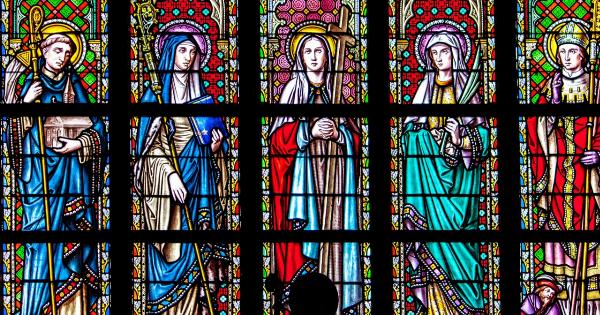Ecclesiastical and diplomatic relationships are two distinct yet interconnected spheres of influence that have played significant roles in shaping history.
Both involve the interaction between religious institutions and political powers, albeit with different objectives and strategies. This article aims to explore the truth behind these relationships, delving into their historical context, motivations, and implications.
The Historical Context of Ecclesiastical and Diplomatic Relationships
Ecclesiastical relationships refer to the interactions between religious authorities and institutions, such as the Catholic Church, Protestant denominations, or Islamic organizations.
These relationships have existed since the emergence of organized religion and have often been marked by tensions and power struggles.
Diplomatic relationships, on the other hand, relate to interactions between political powers, including states, governments, and international organizations.
Diplomacy is a tool used by states to negotiate agreements, resolve conflicts, and maintain peaceful relations. It has been practiced throughout human history, evolving alongside political systems.
The intertwining of ecclesiastical and diplomatic relationships can be traced back to ancient civilizations.
In ancient Egypt, for instance, pharaohs held dual roles as political and religious leaders, symbolizing the close connection between political and spiritual authority. Similarly, in ancient Rome, emperors assumed the title of Pontifex Maximus, indicating their role as both the highest political and religious authority.
The Motivations Behind Ecclesiastical and Diplomatic Relationships
One of the primary motivations behind ecclesiastical relationships is the desire for religious legitimacy and influence.
Throughout history, religious institutions have sought to gain the favor and support of political powers to enhance their authority and spread their doctrines. This has often been achieved through alliances, patronage, and the bestowal of religious legitimacy upon rulers.
Diplomatic relationships, on the other hand, are driven by a complex web of motivations, including national interests, economic considerations, security concerns, and the pursuit of power.
States engage in diplomacy to secure favorable trade agreements, establish alliances, negotiate peace treaties, and influence global affairs. Religious institutions have often played a role in shaping these diplomatic objectives, acting as mediators, advisors, and moral authorities.
The Implications of Ecclesiastical and Diplomatic Relationships
The relationship between religious and political powers has had profound implications throughout history.
On one hand, it has led to the establishment of state religions, where the dominant religious institution becomes intrinsically linked with the government. This has often resulted in the suppression of rival religious groups and the persecution of dissenters.
Moreover, ecclesiastical and diplomatic relationships have frequently shaped the geopolitical landscape. The marriage of political and religious objectives has sparked countless wars, conflicts, and conquests.
The Crusades, for instance, were a series of military expeditions driven by a mixture of religious zeal, economic ambitions, and political rivalries.
Yet, ecclesiastical and diplomatic relationships have also facilitated positive change and progress. Religious institutions have played pivotal roles in advocating for social justice, human rights, and peace.
Diplomacy, when applied effectively, has the potential to prevent wars, foster cooperation, and address global challenges.
Conclusion
Ecclesiastical and diplomatic relationships have always been intricate and multifaceted.
While their motivations and implications have varied throughout history, it is undeniable that both spheres of influence have shaped the course of human civilization. Understanding the truth behind these relationships allows us to reflect on the complex interplay between religion, politics, and power, ultimately shedding light on our collective past and informing our future.































